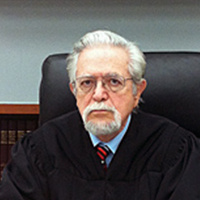 Rancho Santa Margarita Divorce & Family Law Lawyers, California
Rancho Santa Margarita Divorce & Family Law Lawyers, California
Sponsored Law Firm
-
 x
x

Click For More Info:
-
Law Offices Of Anthony Abbott
375 S. Rancho Santa Fe Rd. 105 San Marcos, CA 92078» view mapDivorce & Family Over 50 Years Of Experience
The Law Offices of Anthony Abbott has been working for the people in the great state of California for over 50 years.
800-497-8821
Lawyers
1-10 of 10 matches
Civil Rights, Divorce & Family Law, Estate, Lawsuit & Dispute, Family Law
Civil Rights, Divorce & Family Law, Unfair Labor Practices, Lawsuit & Dispute, Family Law
Civil Rights, Family Law, Trusts, Litigation, Real Estate
Business & Trade, Contract, Prenuptial Agreements, Collection



 Anthony Abbott San Marcos, CA
Anthony Abbott San Marcos, CA